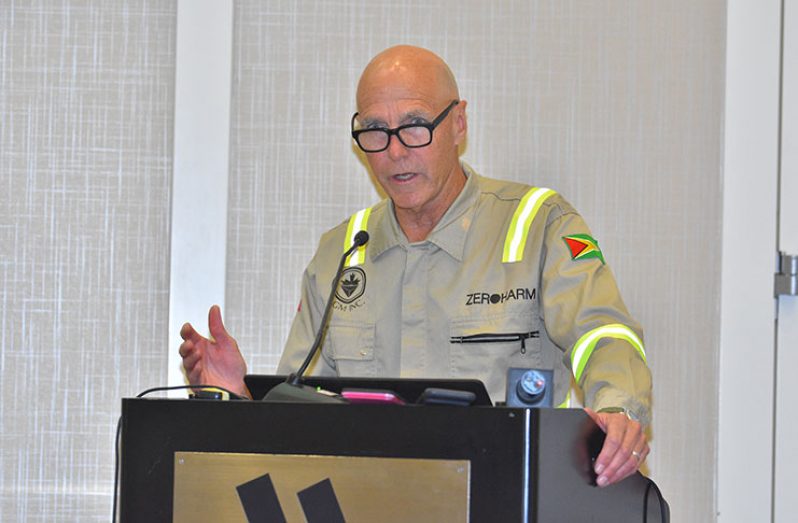— says not bothered by Venezuela’s claim to Cuyuni region
GUYANA Goldfields Inc is monitoring the Guyana-Venezuela territorial controversy, its President and Chief Executive Officer (CEO) Scott Caldwell said, but made it clear that it is currently a “non-issue” for investors operating here.
The Guyana Goldfields’ operation is situated in the Cuyuni-Mazaruni district – an area which is also being claimed by Venezuela. In fact, in October 2015, Venezuela’s Ambassador to Canada issued a warning letter to the company, claiming that its operations were “infringing on the territorial sovereignty of Venezuela”.
Approximately two years after, the CEO said the mining company remains unmoved by the threats issued by Venezuela, stating that it does not “respond to frivolous rules”.
At the end of January, the United Nations announced that the age-old Guyana-Venezuela border controversy will be referred to the International Court of Justice (ICJ) for final settlement. Venezuela has been claiming that the 1899 Arbitral Tribunal Award is null and void, but the claim was made more than 50 years after the Spanish-speaking country had accepted the decision.
On Sunday, while engaging media operatives during a working brunch at the Guyana Marriott, the Guyana Goldfields CEO, when questioned, said the mining company is monitoring the situation and has been in frequent contact with the U.S. Embassy, the Canadian High Commission and the Government of Guyana on the matter, in addition to other investors such as U.S.oil-producing giant, ExxonMobil. However, he reiterated that it is a non-issue here for investors.
“Frankly, in the investment community, because of all the World Court action historically supporting the existing border, we don’t see it as a risk… nor does Exxon… I’ve spoken with people at Exxon, not the Chairman of Exxon but Exxon themselves don’t see it as a risk,” Caldwell said.
The ICJ will make a final ruling in keeping with the tenets of the 1966 Geneva Agreement.
Former UN Secretary-General Ban Ki-moon and Mr. Antonio Guterres, in keeping with the 1966 agreement, agreed to refer the Guyana/Venezuela border controversy to the ICJ if significant progress was not made in arriving at a full agreement for settlement of the controversy at the level of the Good Offices process in December 2017. At the end of December 2017, no significant progress was made and the UN Secretary-General upheld the commitment that was made to the countries in December, 2016, and as such, the matter was referred to the ICJ.
Venezuela is claiming that the 1899 Arbitral Tribunal Award, which had given more than 90 per cent of an area to then British Guiana (now Guyana), is null and void.
Approximately 118 years after that award was issued, the Guyana Government holds strongly to the view that a juridical course of action is the only means through which this matter can be permanently resolved. For more than two years, the government had been seeking to reach a peaceful resolution to the border controversy.



.jpg)









